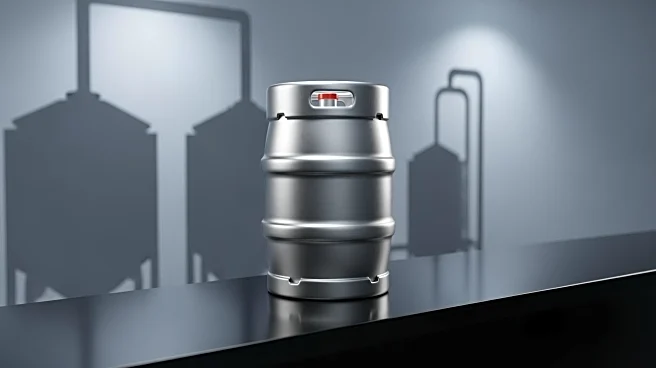What's Happening?
Molson Coors Beverage Company has announced plans to reduce its American salaried workforce by approximately 400 jobs, representing 9% of its U.S. employees, as part of a corporate restructuring initiative.
This decision comes in response to a projected decline in net sales by 3% to 4% for the year, attributed to weakened beer demand and the indirect effects of increased tariffs on aluminum. The company, which packages its products in aluminum cans, has been significantly affected by the Trump administration's decision to double import duties on aluminum from 25% to 50%. This tariff increase has impacted Molson Coors and other U.S. alcohol companies, leading to a challenging economic environment. The restructuring plan includes reinvestment in core beer categories and expansion into premium mixers, non-alcoholic beverages, and energy drinks. The company anticipates incurring charges between $35 million to $50 million in the fourth quarter related to severance and post-employment benefits.
Why It's Important?
The workforce reduction at Molson Coors highlights the broader economic challenges faced by U.S. companies due to tariff policies and changing consumer preferences. The increased tariffs on aluminum have raised production costs, affecting profitability and leading to strategic shifts within the company. This move underscores the significant impact of trade policies on domestic industries, particularly those reliant on imported materials. The restructuring efforts aim to stabilize the company's financial performance by focusing on growth areas such as non-alcoholic beverages and energy drinks, which may offer higher margins and less exposure to tariff-related costs. The job cuts, while necessary for the company's financial health, will have immediate consequences for the affected employees and could influence labor market dynamics in the regions where Molson Coors operates.
What's Next?
Molson Coors will proceed with its restructuring plan, which includes the implementation of workforce reductions and strategic investments in new product categories. The company will manage the financial implications of the restructuring, including severance and post-employment benefits, over the coming year. Industry observers will be watching to see how Molson Coors navigates these changes and whether its focus on non-alcoholic and premium beverage segments will successfully offset the challenges in its core beer business. The broader industry may also respond to these developments, potentially leading to similar restructuring efforts by other companies facing tariff-related pressures.









